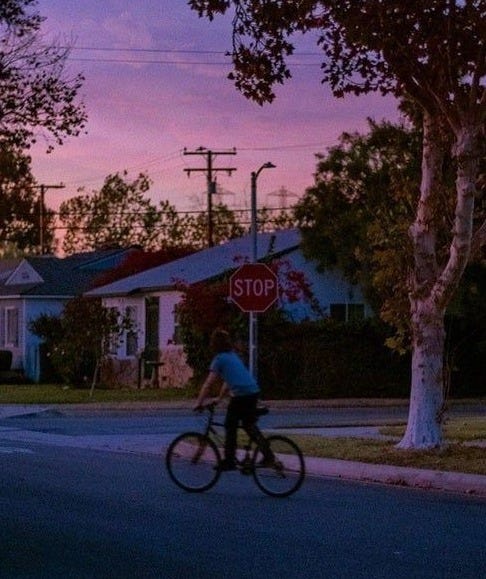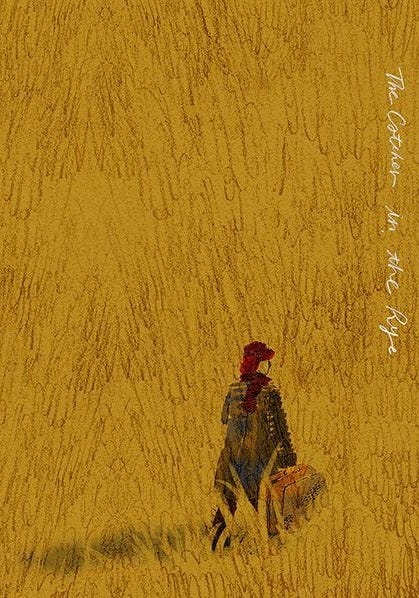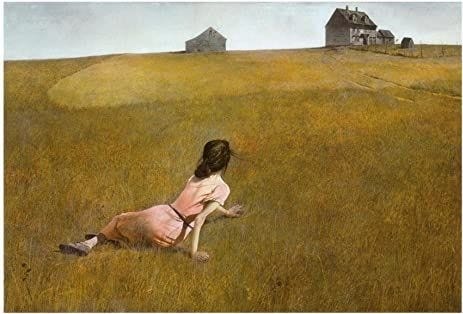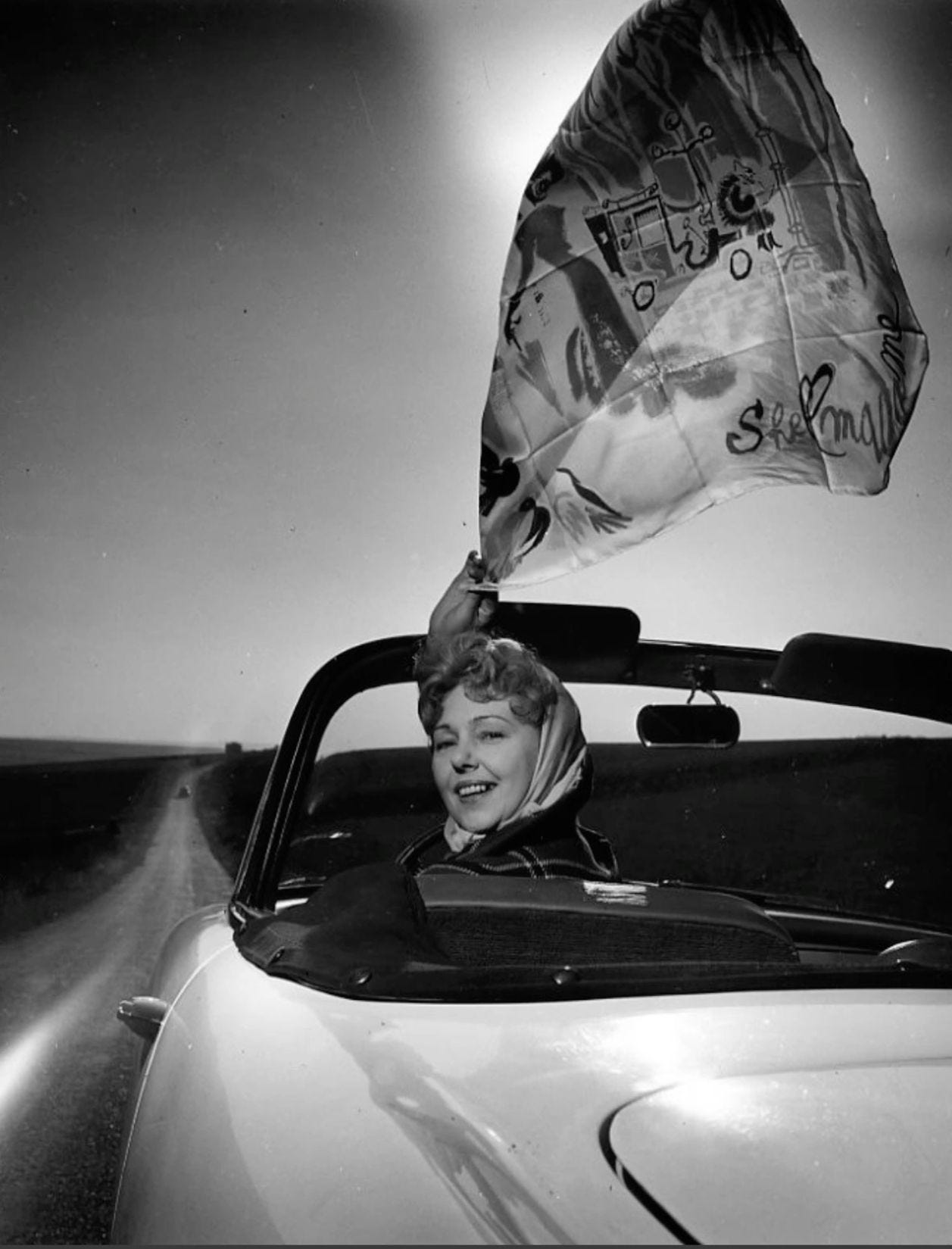If a Body Catch a Body
Finding what is lost.
Attention. Violence. Mutilation. Militants and Malcontents. Everyone hop on the straw-kindling wagon to the bonfire and hope for the best but expect the worst and keep your tray tables and seats upright because, doggone it, it’s going to be a bumpy ride.
The culture is swinging between scolding prudes and rub-your-nose-in-it celebratory perversion. We are chock-a-block with surface-skimming morality that demands no morals except those that advance an upward climb atop the hierarchy. No one pays any mind to the deteriorating consequences from the whipping winds of change except the people who don’t get the reaction they crave — to the click-bait kingpins it’s an endless fiery cyclone.
I can’t decide if I should throw a bucket of water on the fire or hurl myself on it, be part of the mob or throw myself athwart it, however uselessly, as a personal protest to avenge the part I’ve wasted. And, in the chance that my remains burn brilliantly against the dark sky, a flare signaling to the other wayward journeymen. We who need saving but are being dredged through the darkness. We fight against the mob while burdened by a deep sense that something is missing. And there must be an authentic belief and faith that it was there, and it can be found.
I used to have this dream that mixed with a waking vision and became inextricable from life: that of kids riding bikes to the dime store for cold sodas and they’d let the sun beat down on tired legs stretched out over cement curbs. Racing down grassy hills and playing ball in the street or on fresh-cut lawns. Hot thunderstorms. Night breeze. The way you can look into a house on winter nights when the leaves are gone and the people sit in living rooms watching the same box of flickering light and being mad and sad and confused at their longing for peace but consuming the hysteria shining out at them because, at least, they knew there was something out there.
I could imagine it as a world of my daydreams — just a girl scratching nothing into a spiral-bound notebook. I didn’t know who I was or where I was meant for, just that I wanted to go and go.
And I dreamed I could shake people from it and also be everything to everyone. But it doesn’t work that way. You can only rescue yourself and hope it burns a new light away from the flickering one, the fake one. Maybe it will catch the eye of someone else who needs to be saved. Did you ever read J.D. Salinger? Do you recall the duty Holden places on his catcher in the rye?
We were both lost in the sea of a city floating on dreams but drowning in emptiness. Lost innocence and coming of age in a time of shifting values, vanishing moral framework, and upside-down ideas of purpose, tradition, and accepted truths.
Salinger writes about Holden’s misreading of Robert Burns’s 1784 poem “Comin’ Through the Rye,” and his unconscious stubbornness to hold true to it rather than the actual meaning:
“It's 'If a body meet a body coming through the rye'!" old Phoebe said. "It's a poem. By Robert Burns."
"I know it's a poem by Robert Burns."
She was right, though. It is "If a body meet a body coming through the rye." I didn't know it then, though.
"I thought it was 'If a body catch a body,'" I said. "Anyway, I keep picturing all these little kids playing some game in this big field of rye and all. Thousands of little kids, and nobody's around — nobody big, I mean — except me. And I'm standing on the edge of some crazy cliff. What I have to do, I have to catch everybody if they start to go over the cliff — I mean if they're running and they don't look where they're going I have to come out from somewhere and catch them. That's all I'd do all day. I'd just be the catcher in the rye and all. I know it's crazy, but that's the only thing I'd really like to be. I know it's crazy.”
But what if our sense of loss doesn’t come from a personal disaffection or generational angst but one of the human condition: We can never go back.
Do we share in a grief unmoored from reality and planted in an idyllic imagining of what we want to be true in the future — or even what we wanted to be true in the past so that we could at least measure in a concrete way how far we have strayed and have a path back from where we’ve come, a starting point — a home — to where we can return.
If our idea of reality doesn’t get us there — if it doesn’t lift us to our expectations of what life was, or is, to be, then we craft ourselves to meet our best ideations. For Holden, it was at least to save himself and maybe protect his sister. To be the catcher in the rye. His misreading of Burns’s poem lifted his eyes to something toward which he could aspire. It was the thing that would lift him out of his grief and sense of loss; of defying the crowd that lacks awareness of its monstrous self-propulsion.
Louise Menand touches on this point in his 2001 New Yorker essay, “Holden at Fifty”:
The world is sad, Oscar Wilde said, because a puppet was once melancholy. He was referring to Hamlet, a character he thought had taught the world a new kind of unhappiness—the unhappiness of eternal disappointment in life as it is, Weltschmerz. Whether Shakespeare invented it or not, it has proved to be one of the most addictive of literary emotions. Readers consume volumes of it, and then ask to meet the author. It has also proved to be one of the most enduring of literary emotions, since life manages to come up short pretty reliably. Each generation feels disappointed in its own way, though, and seems to require its own literature of disaffection…Holden Caulfield is their sorrow king. Americans who grew up in later decades still read Salinger’s novel, but they have their own versions of his story, with different flavors of Weltschmerz — Catcher in the Rye rewrites, a literary genre all its own.
It reflects a generation discovering that what was lost was home. At least for the “Lost Generation” of a century past represented through Ernest Hemingway, F. Scott Fitzgerald, Gertrude Stein, and John Dos Passos, there was a surge toward the possible — a search for it. They saved the world once and lost themselves in the saving. But we can’t save ourselves. We cannot save time, we cannot save each other. We lose ourselves in the saving. So we let go.
And we rush about our lives feeling time pound us on the head when we think of it — every second like a blacksmith hot forging steel. Pounding, pounding, on white-hot nerves.
Not long ago there was Hemingway’s bull roaring blood and violence and cursing existence. We were swept up in Cormack McCarthy’s devils, swallowed by David Foster Wallace’s despair, and Flannery O’Connor shot us in the head. What shakes us now? Beauty? (Guessing from the number of my unsubscribes after my last post on the matter, no.)
Violence, then? Quentin Tarantino spun a direct line from Don Siegel’s Dirty Harry to James Cagney who stood emotionless on the towering movie screen with his chicken leg in one hand and his smoking revolver in the other in White Heat. The violence in stories isn’t novel nor is it an authentic reaction to it. None of it is — not the devils or despair. No, now we have the mob. The politics-fueled, seething, self-righteous mob. The mob offers an excuse to lean into personal grievances rather than to look at what used to be universal to man. There was a trade for tribal purity from anger but we gave up freedom — to think, feel, and even fail.
It’s just as destructive to let ourselves be consumed by this engrossing mob than to let our failures destroy us.
But to live here — to exist as the catcher or Gatsby or even the version of Hemingway as he wanted us to see him — we must believe in the stories of our past. Or, as Joan Didion writes in The White Album:
We tell ourselves stories in order to live...We look for the sermon in the suicide, for the social or moral lesson in the murder of five. We interpret what we see, select the most workable of the multiple choices. We live entirely, especially if we are writers, by the imposition of a narrative line upon disparate images, by the "ideas" with which we have learned to freeze the shifting phantasmagoria which is our actual experience.
The stories are what shape our existence, our relationship with each other, our relationship with the truth, and how far the truth will carry us in a world bursting with deceit and unsteadiness verging on chaos.
Just as being in the embrace of love makes us think anything is possible, the stranglehold of loss makes us think nothing is. We are now realizing that what we lost was authenticity. We lost ourselves in trying nothing rather than being something. We stopped taking risks and boldly meeting the world as it should be and instead lamented that the world was not what it was. We stopped dreaming. We stopped being who we could be in exchange for being the worst parts of ourselves if it meant we could be foolish enough to be lost in it.
“The celebrity was dead. The novelist remained,” Dos Passos wrote as A Note On Fitzgerald. I’ll never be everything to everyone if it means I become no one. I cannot. I will be the person who exists as myself, belonging nowhere. It could be a start. Or it could be the end.
I admit to my small petty indulgences. I gnash my teeth at how I torture myself about every post and usually see my subscriber count drop, 99.9 percent of which is made up of the free sort anyway. (You freeloaders… “Just kidding!” she begged and pleaded). So, in the spirit of loss and redemption and failure I will give you everything I have, every time. I hope you stick with me, but I understand if this isn’t for you.
However, my next post will be lighter with a touch of spun sugar as we approach Christmastime. A Pilgrim’s Progress goes to Candyland!
Sincerely, Jenna






You can pack a lot into a post. Very rich writing and thinking. You do capture the essence of restlessness. Is that Isadora Duncan with the scarf?
Wondrous grappling. Losing oneself in the scouring for meaning. Knowing it’s life to immerse in stories, but you might miss something in the immersion. I think I recognize you’ve always been inventorying the culture’s mores and values. If I’ve understood this, even if I haven’t, I’m with you. You’re a real one. You deserve supporting. This is a crushing piece. (I’ll have to tell you a stupid story sometime about J.D. Salinger, my early life’s hero.) Way to go! I will share and encourage others to share, and look forward to that next piece of spun sugar. But this was the meat and potatoes.